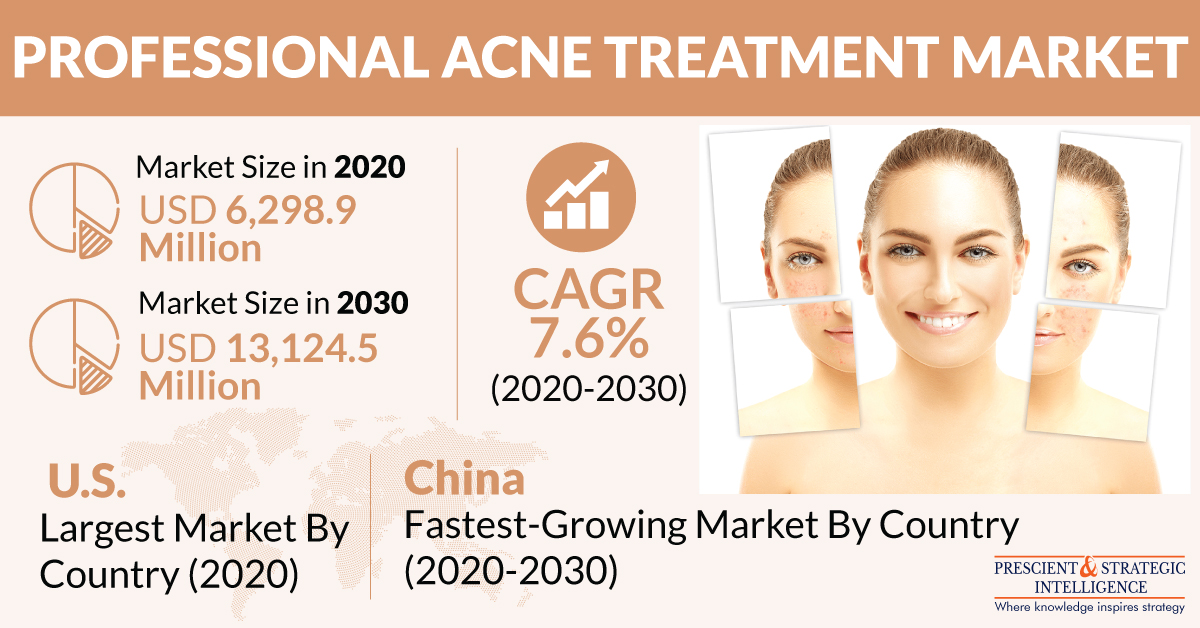From $6,298.9 million in 2020, the global professional acne treatment market value is predicted to reach $13,124.5 million by 2030, at a 7.6% CAGR between 2020 and 2030.

The market is being driven by the following factors:
- Rising Prevalence of Acne: Almost 90% of the people on earth, especially young adults and adolescents, get acne at some point in their lives. Moreover, the Global Burden of Disease study estimates the 2019 incidence of this common dermatological issue at 50 million cases in the U.S. alone.
- Adoption of Sedentary Lifestyle: This is another key driver for the professional acne treatment market as being less physically active leads to a rise in weight and the levels of lipids in the body. This, in turn, upsets the hormone concentration, which results in an array of skin diseases, including hormonal acne.
The coming years will be characterized by the faster growth of the inflammatory bifurcation in the professional acne treatment market, on the basis of acne type. This kind of acne is considered severer than the non-inflammatory type, and it is often painful. Additionally, inflammatory acne cannot be cured by most of the drugs available over the counter (OTC), which is why a professional’s intervention is preferred.
Nowadays, the increasing focus of pharmaceutical companies on introducing new products is becoming a prominent trend in the professional acne treatment market. For example, in August 2020, Cassiopea SpA received the U.S. Food and Drug Administration (FDA) approval for Winlevi, an acne treatment cream derived from clascoterone. This cream has been developed for treating acne in patients aged 12 years and above. Similarly, in February 2021, VYNE Therapeutics Inc. received the FDA approval for its AMZEEQ (minocycline) topical foam. This foam is designed to treat inflammatory lesions caused by non-nodular moderate-to-severe acne in children aged nine years or more and adults.
The acne type segment of the professional acne treatment market is bifurcated into inflammatory and non-inflammatory. Of these, the inflammatory category generated the higher revenue in 2020 due to the surging need for an effective treatment for inflammatory acne, as it is usually painful. A large number of pharmaceutical companies are offering branded and generic drugs for inflammatory acne, as the commonly available benzoyl-peroxide and salicylic-acid-based over-the-counter (OTC) products are not completely effective on it.